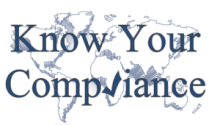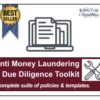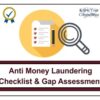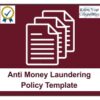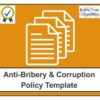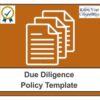Money Laundering Risks & Effective AML Controls
FATF AML Risk Report
The Financial Action Task Force (FATF) published a statement on 23 October 2020 regarding the COVID-19 pandemic and how it continues to have a profound impact on society as a whole. The statement advises that the May 2020 report produced by FATF on the challenges, practices and policy responses to new money laundering and terrorist financing threats and vulnerabilities remains relevant. Here we take a look at some of the report contents and suggestions.
 There has never been a more important time to ensure that anti-money laundering controls, policies and measures are in place, effective, robust and adequate. Whenever there is a vulnerability in a system, such as in a time of national crisis; criminals will find a way to exploit such weaknesses to the detriment of companies and individuals alike. From scams and phishing schemes, through to complex cyber crime aimed at laundering money and terrorist financing, it is essential that the tools used by businesses to identify and mitigate money laundering are established and fit for purpose.
There has never been a more important time to ensure that anti-money laundering controls, policies and measures are in place, effective, robust and adequate. Whenever there is a vulnerability in a system, such as in a time of national crisis; criminals will find a way to exploit such weaknesses to the detriment of companies and individuals alike. From scams and phishing schemes, through to complex cyber crime aimed at laundering money and terrorist financing, it is essential that the tools used by businesses to identify and mitigate money laundering are established and fit for purpose.
The FATF have said that it is essential for AML/CFT systems to adapt to the changing environment in order that they continue to operate effectively. Countless new technologies have been developed and deployed during 2020 as each country adapts to digital methods of working and communicating. This in turn calls for more sophisticated anti-money laundering systems, controls and methods to ensure financial crime is stopped before it starts.
Key risks from the FATF report include: –
- Criminals finding ways to bypass customer due diligence measures
- Increased misuse of online financial services and virtual assets to move and conceal illicit funds
- Exploiting economic stimulus measures and insolvency schemes as a means for natural and legal persons to conceal and launder illicit proceeds
- Increased use of the unregulated financial sector, creating additional opportunities for criminals to launder illicit funds
- Misuse and misappropriation of domestic and international financial aid and emergency funding
- Criminals and terrorists exploiting COVID-19 and the associated economic downturn to move into new cash-intensive and high-liquidity lines of business in developing countries
The FATF encourage the full use of a risk-based approach to customer due diligence which is essential in knowing who businesses are working with and on behalf of. Extensive and robust due diligence controls are one of the key measures in identifying money laundering risks and should form a large part of any AML compliance program.
Know Your Compliance Limited provide anti-money laundering policies, templates, toolkits and training packages to thousands of UK businesses across hundreds of industries. Our complete AML Toolkit covers AML policy, procedures, AML risk assessment, complete due diligence policy and questionnaires, anti-bribery & corruption, whistle blowing and much more.
